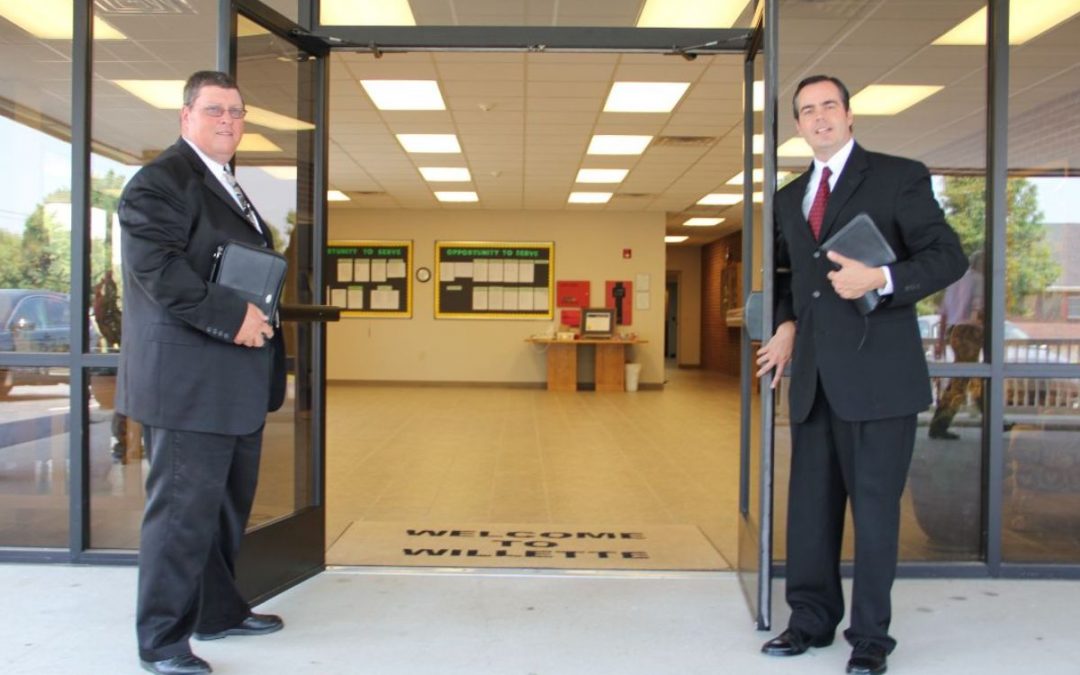If you have no contacts, evangelism will never get off the ground. Developing contacts is the first and foundational step in developing successful evangelism at the local level. The largest cache of contacts sits in our pews. Each member represents dozens, if not hundreds, of non-Christians. They have grown up with them, know them from work, or played ball together. They belong to the same social circles. These are all Bible study contacts, but sadly most Christians do not see them as such. We see them as family and friends but not contacts. This must change! The following strategy will help you tap into this rich and rewarding resource.
First, ask each member to list ten non-Christians they know. While the preacher is normally surrounded by Christians, pew members are surrounded by the lost. We have designed HTHSOE bookmarks that can be kept in your Bible and used to list contacts. Each time members open their Bibles, they are reminded of the responsibility to cultivate this contact into a Bible study.
Second, create a Compassion Card list. Solicit names of people from the community who are sick, discouraged, suffering, lonely, bereaved, or recently moved. Place their names, needs, and addresses on the list. Publish the list to the congregation. Begin sending cards to till the soil of these hearts. This is what we like to refer to as a contact creator. The more of these you do, the more souls you can reach.
Third, empower your members to use benevolence to help those they know who are in need. Instead of spending the resources of the congregation on vagrants and professional con artists that no one has ever met, look for those in need within your local community. If a member knows of a need, bring it to the church and use the power of the pews to meet the contact’s need and cultivate the heart.
Fourth, create situations that encourage members to bring non-Christians to meet Christians. Meals, lessons on special topics, and other events provide an opportunity for the pew to reach out to the contact list. When a person visits, be ready. Greeters stationed at the doors and among the pews can hand out visitor bags and record contact information for immediate follow-up. Be friendly.
Fifth, keep your doors open. COVID understandably has created some serious challenges to congregations, and some adjustments must be made. If possible, we should keep the doors open. Closed doors mean closed opportunities to save souls. Recently we had two visitors come on Wednesday night. After meeting Mary and Carol, I asked, “What brought you to Jacksonville?” Carol said, “Our community church does not meet on Wednesday night, so we decided to come here.” These two ladies (contacts) just moved to my prospect list, and in time I hope they will consent to Bible studies. Consider what would have happened if the church were closed on Wednesday nights like many are right now. The opportunity to sit in the pews is a powerful evangelism tool!
We cannot continue to rely on the preacher as the church’s only evangelist! It is not only unscriptural but also a losing strategy. Why not use the power of the pews and engage church members to become bringers? If the preacher is the only one evangelizing, at best you might maintain your membership size. If the members begin to evangelize, your congregation will grow!


Recent Comments